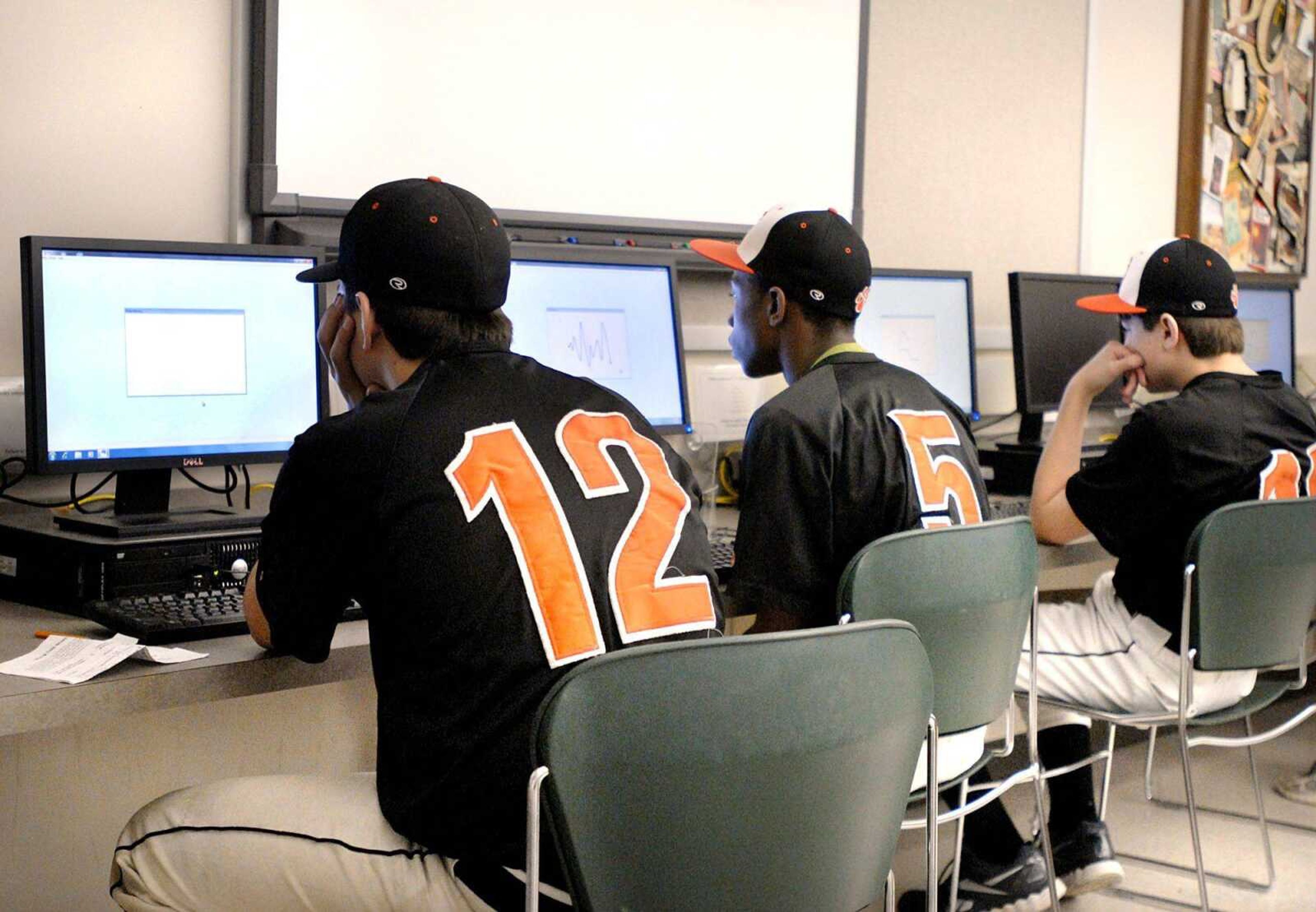CHICAGO -- Children with even relatively mild concussions can have persistent attention and memory problems a year after their injuries, according to a study that helps identify which children may be most at risk for lingering symptoms.
In most children with these injuries, symptoms resolve within a few months but the study results suggest that problems may linger for up to about 20 percent, said study author Keith Owen Yeates, a neuropsychologist at Ohio State University's Center for Biobehaviorial Health.
Problems like forgetfulness were more likely to linger than fatigue, dizziness and other physical complaints, the study found.
Forgetfulness, difficulty paying attention, headaches and fatigue were more common in study children who lost consciousness or who had other mild head trauma that caused brain abnormalities on imaging tests, compared with children who didn't get knocked out or who had normal imaging test results.
The study looked at symptoms up to a year after injury so it doesn't answer whether any children had longer-lasting or permanent problems.
"What parents want to know is if my child is going to do OK. Most do OK, but we have to get better at predicting which children are going to have problems," Yeates said.
Those who do may need temporary accommodations, including extra time taking school tests, or wearing sunglasses if bright light gives them headaches, he said.
Symptoms to watch for
"Patients may report impaired memory and concentration several months after the initial injury," said Dr. Jamie D. Harrison, a physician at Southeast Primary Care in Cape Girardeau. "However, thankfully if these symptoms occur, they are typically present during the initial, first few weeks and then resolve.
"Disruption of sleep pattern in the form of insomnia may also be found," Harrison said. "Approximately 15 to 20 percent of patients will meet criteria supporting psychiatric disease, including post-traumatic stress disorder, anxiety, depression or panic disorder. Patients may also experience personality changes, including irritability."
Dr. Heidi Hunter, a physiatrist and medical director for inpatient rehabilitation at Saint Francis Medical Center in Cape Girardeau, said that though rare, some long-term side effects from concussions are possible for patients.
"Long-term effects of concussion are a valid concern in children," Hunter said. "Luckily, 90 percent of patients who sustain a concussion will have no long-term deficits, but it is possible to see continued memory and attention deficits, learning difficulties, headaches and personality changes long after the initial event. These long-term effects are especially detrimental to young children who are still learning mathematics, reading, social skills, etc."
Dr. Seth Hudson, a chiropractor at PC Wellness Centers in Cape Girardeau, said parents should get educated on what to look for should their child experience a head trauma. He said the potential side effects can include post-injury cognitive deficits, behavior problems and post-concussive symptoms.
"The symptoms are especially prominent immediately after an injury and include complaints of headache, dizziness, fatigue, depressed or anxious mood, sleep disturbance, light sensitivity, forgetfulness and concentration difficulties," Hudson said. "If a parent knows of a head trauma and notices any of these changes, an appointment with a family doctor or neurologist should immediately be made in regards to what is best for the child's immediate and long-term health."
Concussions and sports
Most children studied had concussions from playing sports or from falls. About 20 percent had less common mild brain trauma from traffic accidents and other causes.
Concussions involve a blow to the head that jostles the brain against the skull, although imaging scans typically show no abnormalities. Other mild brain trauma can cause tissue damage visible on those scans.
Kimberly Keser, a family nurse practitioner at AWL Family Healthcare Center in Cape Girardeau, said that taking appropriate safety precautions when competing in sports is a good way to help prevent head injuries.
"Protective head gear can help," Keser said. "High-contact sports pose a risk for higher incidence of head injuries. These may include such sports as football, wrestling, soccer and boxing, and any other sport that has the potential for contact."
The study included 186 children aged 8 to 15 with mild concussions and other mild brain injuries treated at two hospitals, in Cleveland and Columbus, Ohio. The reports are based on parents' reports of symptoms up to 12 months after the injuries.
The brain injuries studied were considered mild because they involved no more than half an hour of unconsciousness; 60 percent of children with concussions or other brain trauma -- 74 children -- had no loss of consciousness.
Overall, 20 percent -- 15 children -- who lost consciousness had lingering forgetfulness or other nonphysical problems a year after their injury; while 20 percent who had abnormal brain scans -- six children -- had lingering headaches or other physical problems three months after being injured.
The results were published online recently in Archives of Pediatrics & Adolescent Medicine.
The study adds to research showing that mild traumatic brain injuries, including concussions "should not necessarily be treated as minor injuries," Dr. Frederick Rivara, Archives' editor, said in a journal editorial. More information is needed to determine who is most at risk for lingering problems after these injuries, and to determine what type of treatment and activity restriction is needed, said Rivara, a pediatrician and University of Washington researcher.
Southeast Missourian assistant managing editor Lucas Presson contributed to this story.
Connect with the Southeast Missourian Newsroom:
For corrections to this story or other insights for the editor, click here. To submit a letter to the editor, click here. To learn about the Southeast Missourian’s AI Policy, click here.








